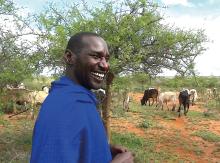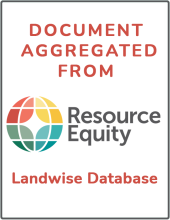Land Library Search
Through our robust search engine, you can search for any item of the over 73,000 highly curated resources in the Land Library.
If you would like to find an overview of what is possible, feel free to peruse the Search Guide.
/ library resources
Showing items 73 through 81 of 218.In Afghanistan, insecurity over land and water rights hampers investments in food production and irrigation. In rural areas, customary tenure systems, partly based on religious law, are the most relevant but suffer from weak recognition and offer little protection to rights holders.
The year 2016 marks 15 years since the new wave land reforms became operational in Tanzania. Despite its ambitious goals – encouraging land registration and titling, and empowering women and other vulnerable groups – the results are disillusioning.
The following is an account of a grassroots movement led by a group of NGOs and communities who went to the Constitutional Court, the highest court in South Africa, to challenge the law dealing with land claims.
This report, which focuses on Kenya, constitutes one of four country-wide assessments produced under the overall project.
In this case, which was heard before the Constitutional Court of the Republic of South Africa, The Restitution of Land Rights Amendment Act 15 of 2014 was declared invalid.
Capacity of local land administration has to be addressed for further strengthening the governance system with a view to deriving the benefits of socio-economic, political and cultural development for the common people of this country.
Since its independence in 1980, Zimbabwe has pursued a land reform and resettlement program aimed at addressing racially skewed land distribution.
The Land Sector Non State Actors (LSNSA) is a network of civil society organizations working together to promote secure and equitable access to land and natural resource for all through advocacy, dialogue and capacity building.








